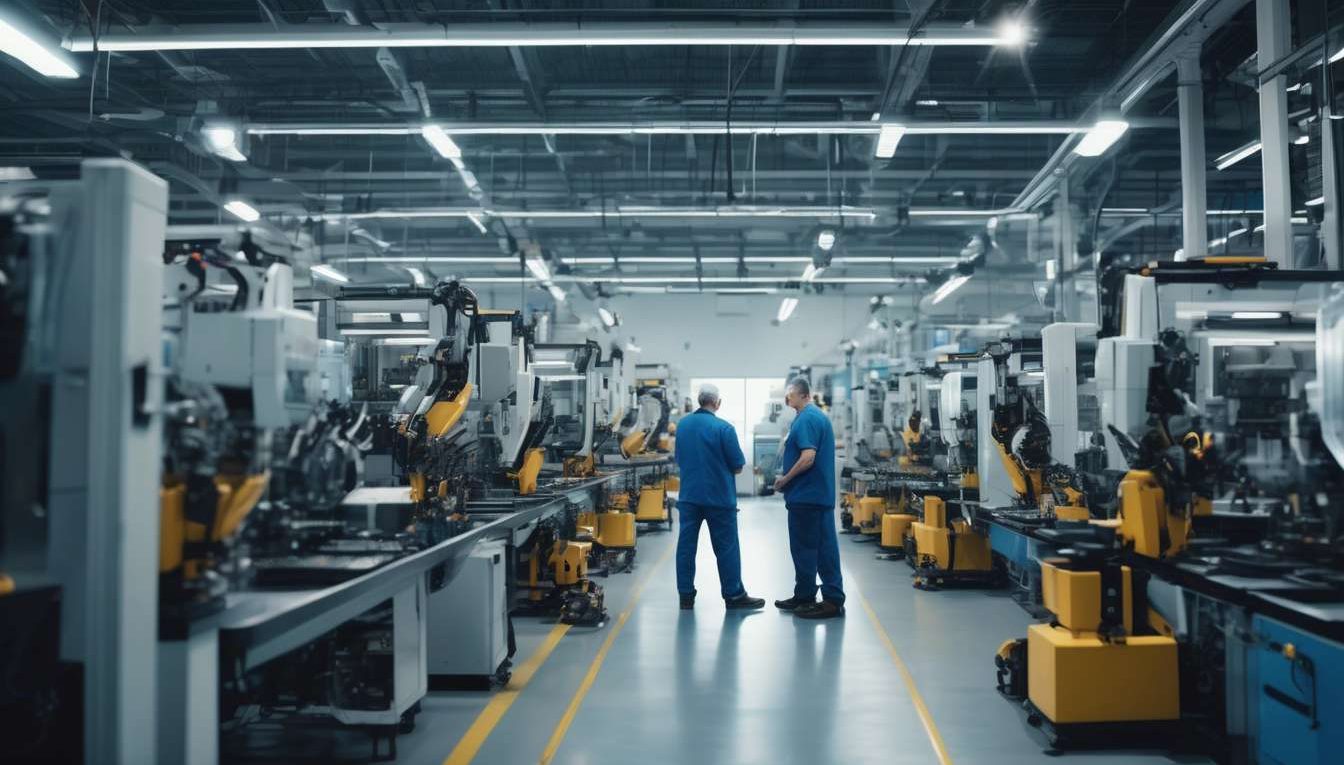Good solutions for your industrial business
In the rapidly evolving industrial sector, businesses face an array of challenges that require innovative and efficient solutions to maintain competitiveness and drive growth. The pursuit of optimal solutions is crucial for:
- Enhancing operational efficiency
- Maximizing productivity
- Ensuring sustainability
This article explores a range of effective strategies and technologies that can be leveraged to address the unique demands of industrial enterprises.
From advanced automation systems and data analytics to sustainable practices and supply chain optimization, the discussion centers on actionable insights applicable across various industrial contexts.
Key Technologies and Strategies:
- Advanced Automation Systems
- Data Analytics
- Sustainable Practices
- Supply Chain Optimization
The integration of cutting-edge technologies and strategic management practices not only fosters resilience but also positions businesses to capitalize on emerging opportunities in the global market.
By evaluating these solutions, industrial businesses can identify pathways to:
- Achieve operational excellence
- Reduce costs
- Enhance overall performance
This comprehensive approach promises to equip industry leaders with the tools necessary to navigate the complexities of the modern industrial landscape.
For those seeking further information, the best option is available online, providing access to a wealth of knowledge and resources tailored to the specific needs of industrial enterprises.
Automation for Efficiency
Automation for Efficiency
Automation streamlines industrial processes by:
- Reducing manual tasks
- Accelerating production timelines
The adoption of automated systems enhances operational precision, leading to:
- Increased productivity
- Reduced human error
Integration with Advanced Analytics
When integrated with advanced analytics, these systems provide real-time data that:
- Supports informed decision-making
- Further optimizes workflow
Competitive Edge in the Industrial Sector
Automation solutions are essential for organizations aiming to:
- Maintain a competitive edge
- Achieve greater consistency in output
- Improve overall efficiency
Sustainability and Resource Management
In addition to boosting productivity, automation contributes to sustainability goals by:
- Minimizing resource waste
- Reducing energy consumption
Automated systems can be programmed to:
- Operate only when necessary
- Reduce unnecessary energy usage
- Lower carbon footprints
This alignment with sustainability initiatives:
- Meets industry standards
- Appeals to environmentally conscious stakeholders
Community and Industry Evolution
As industries continue to evolve, automation remains a pivotal component in:
- Fostering a sense of community within the industrial landscape
- Uniting companies towards common goals of efficiency and environmental responsibility
Data Analytics for Insight
Harnessing the power of data analytics transforms raw data into actionable insights, driving strategic decisions and fostering operational excellence.
In industrial businesses, integrating analytics with existing systems optimizes processes and enhances decision-making capabilities. The synergy between analytics and automation enables real-time monitoring and predictive maintenance, minimizing downtime and maximizing productivity. This technology not only provides a competitive edge but also aligns with organizational goals by improving resource allocation and reducing waste.
Analytics plays a pivotal role in sustainability initiatives, ensuring that operations are not only efficient but also environmentally responsible. By analyzing energy consumption patterns, companies can:
- Identify areas for improvement
- Reduce emissions
- Achieve cost savings
Furthermore, analytics facilitates informed decisions, aligning with sustainability goals and fostering a culture of continuous improvement.
The adoption of data analytics within industrial sectors strengthens the community of forward-thinking businesses. By collaborating and sharing insights, companies can collectively advance toward a future where:
- Automation
- Analytics
- Sustainability
coexist harmoniously, ensuring long-term success and resilience.

Sustainable Supply Chains
Developing sustainable supply chains is critical for industrial businesses seeking to minimize environmental impact while maintaining efficiency and cost-effectiveness. By integrating sustainability into core operations, companies can enhance their reputation and align with consumer values.
Automation plays a pivotal role in achieving these goals:
- Streamlining processes to reduce energy consumption and waste.
- Employing advanced robotics and machine learning to optimize resource allocation.
- Ensuring sustainable practices throughout the supply chain.
Analytics further supports sustainability by providing insights into supply chain operations:
- Detailed data analysis allows for better decision-making.
- Identifying areas for improvement and tracking progress towards sustainability objectives.
- Application of predictive analytics to anticipate and mitigate potential disruptions, ensuring continuity and resilience.
Sustainability in supply chains not only benefits the environment but also fosters a sense of community and shared purpose among stakeholders. By prioritizing sustainable practices, businesses contribute to a more sustainable future, reinforcing their role as responsible leaders within the industrial sector.

